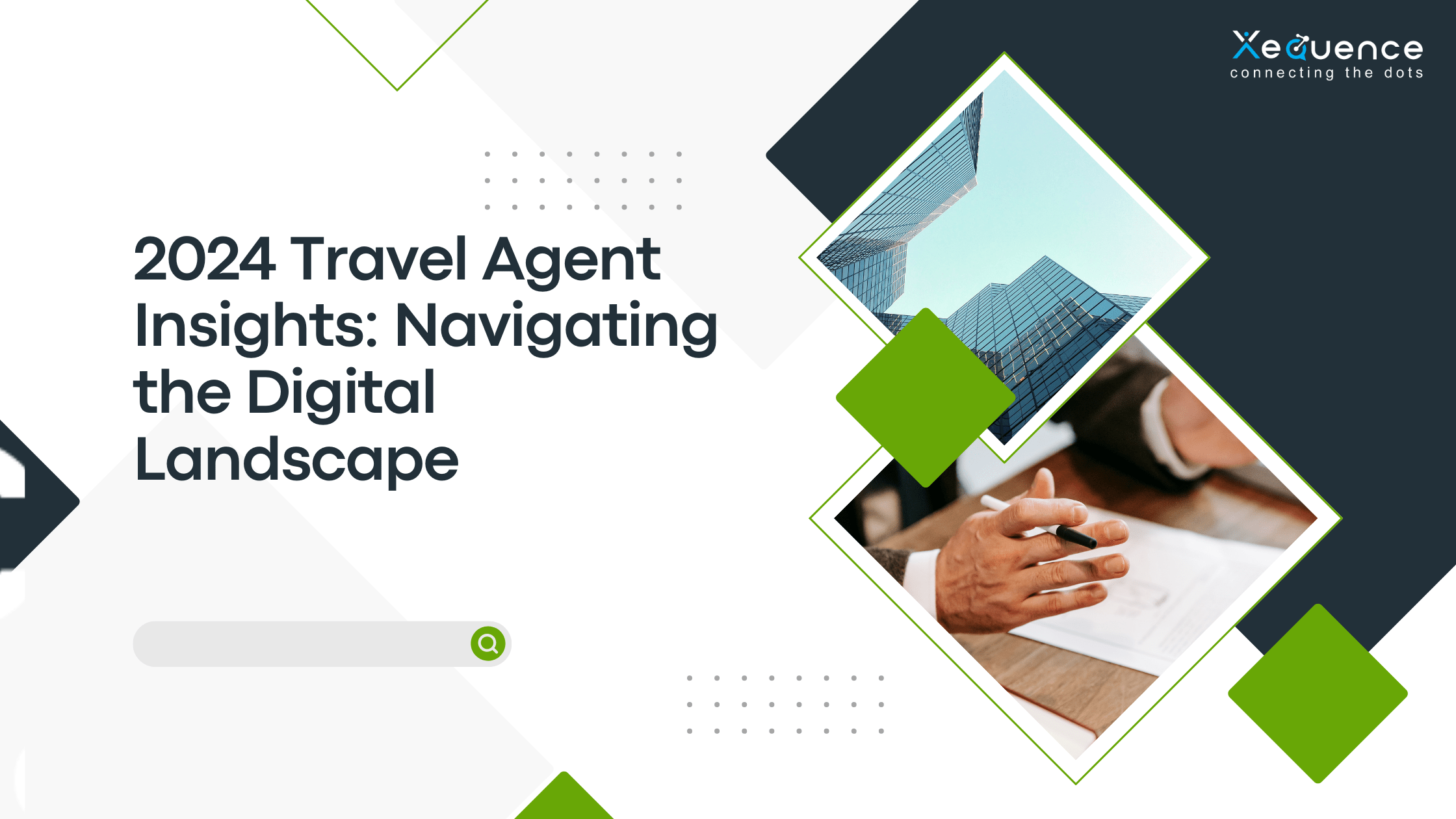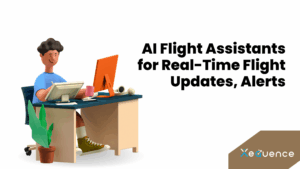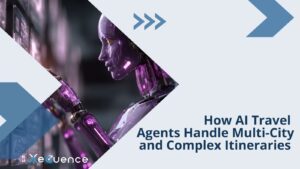
Digital technology is driving the evolution of travel industry
The rapidly growing field of digital technology is driving the evolution of travel industry. With the ever-changing requirements of travelers, travel agencies to be up to date on these digital developments.
The landscape is changing due to major trends like eco-friendly travel technologies, seamless mobile integration, immersive virtual and augmented reality experiences, and personalization powered by AI. These technologies improve client satisfaction by making trip planning more personalized, interesting, and environmentally friendly, in addition to increasing efficiency and effectiveness. For travel agents hoping to prosper in the future, embracing these digital trends is crucial.
An increase in automated bookings
One of the major trends in travel forecast for 2024 is automated bookings, which may not come as a surprise considering our growing reliance on technology. While they are not new, automated travel reservations are predicted to rise significantly in the coming years. The Artificial Intelligence travel booking market was valued at $432 billion in 2020 and is predicted to reach $833 billion by 2025. Programmatic advertising enables precise targeting based on the customer’s journey stage, from initial research to booking, guiding them effectively towards the “book” button.
Faster mobile bookings
Increasing usage of mobile devices coincides with an increase in automated reservations. Up to 70% of us reportedly plan our vacations using their smartphones. It is critical that your advertisements successfully capture the attention of potential consumers even when you’re reaching them via mobile devices. Furthermore, there’s a limited timeframe between searching and booking. It is therefore necessary for you to be able to retarget clients with relevant display adverts depending on their previous interaction and activity. You are running in the danger of losing business to a rival who can if you don’t.
More personalization
A research reveals that a great percentage of the consumers expect personalized interactions from companies. Most of them became frustrated when expectations aren’t met. To effectively engage and convert customers, brands must tailor interactions to individual interests, behaviors, and past experiences. This means offering tailored experiences in hotel service such as sports events for fans, ski breaks for winter sports enthusiasts, and treks for adventure seekers. Ads should reflect users’ previous interactions, showing details like specific travel dates and prices or complementary services like hire cars post-booking. By leveraging legal and consented data for personalization, brands not only boost conversion rates but also foster long-term customer loyalty.
More transformational trips
In 2023, the enduring trend of wellness getaways and transformational trips continues strong. Modern travelers seek holidays that enhance health, wellbeing, yoga retreats, and adventure expeditions. Effective ad campaigns hinge on precise data targeting, ensuring fitness enthusiasts receive adventure-focused ads rather than all-inclusive beach resorts. This strategic alignment maximizes appeal and relevance, catering precisely to diverse traveler preferences in today’s evolving tourism landscape.
Virtual Reality (VR) & Augmented Reality (AR)
The travel and tourism sector uses Virtual Reality & Augmented Reality very frequently. To help guests make better decisions, a number of hotel chains are experimenting with virtual reality (VR) by letting them see a computerized version of their rooms before they ever check in. When it comes to augmenting real-world situations with overlays, augmented reality is usually implemented using a smartphone app. One possible application of this would be if a user were to point their phone at a restaurant to read reviews left by patrons or at a hotel map to get more details about neighboring attractions. A resort, cruise ship, or other tourist location might be shown upfront using 360-degree films or interactive virtual maps.
Internet of Things
The Internet of Things represents yet another digital development in tourism management. This is a reference to the ability of common gadgets to send and receive data through the internet. It may be automatically implemented to lower expenses and enhance client satisfaction without requiring human intervention, which makes it very helpful in the tourism sector. In travel and tourism, the Internet of Things software market is expected to reach $11 billion by 2027. Using smart energy systems, for instance, it is possible to stop wasting energy in unoccupied rooms by having the temperature of each room automatically adjusted based on its occupancy.
Artificial Intelligence (AI)
Artificial Intelligence travel is employed in several contexts outside robotics. The artificial intelligence market is only anticipated to expand; by 2025, it is anticipated to reach a valuation of $420 million. Since chatbots can respond quickly to issues or inquiries, it’s possible that the travel and tourism sector uses them most obviously for customer support. Through interactions with clients, it can also continuously learn new things.
Use of Paid Ads
Google Ads, YouTube Ads, Facebook Ads, Instagram Ads, and Microsoft Advertising are some option you could catch for running your ads. Any of these platforms will give you the ability to target specific audiences and get visibility on websites. However, social media advertising is a great way of targeting particular demographics. Pay-per-click digital advertising is particularly popular. In this type of advertising, you pay the publishing platform each time a person clicks on your advertisement.
The final words
In the year 2024, digital changes will continue to shape the travel agent industry. Adaptation is essential in the age of AI-driven personalization, virtual reality, and seamless mobile booking systems. Apart from improving consumer experiences, adopting these innovations will ensure relevance and competitiveness in the changing travel business by streamlining operations and redefining the role of travel agents in a tech-savvy world.
Recent Posts
5 Myths About AI in Hospitality Operations | Facts Every Hotelier Should Know
Newsletter
Get regular updates on data science, artificial intelligence, machine
You may also like

Al Flight Assistant Integration with Airline Reservation Systems

The Future of Hospitality Operations: AI Trends to Watch

AI Flight Assistants for Real-Time Flight Updates, Alerts




